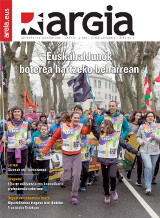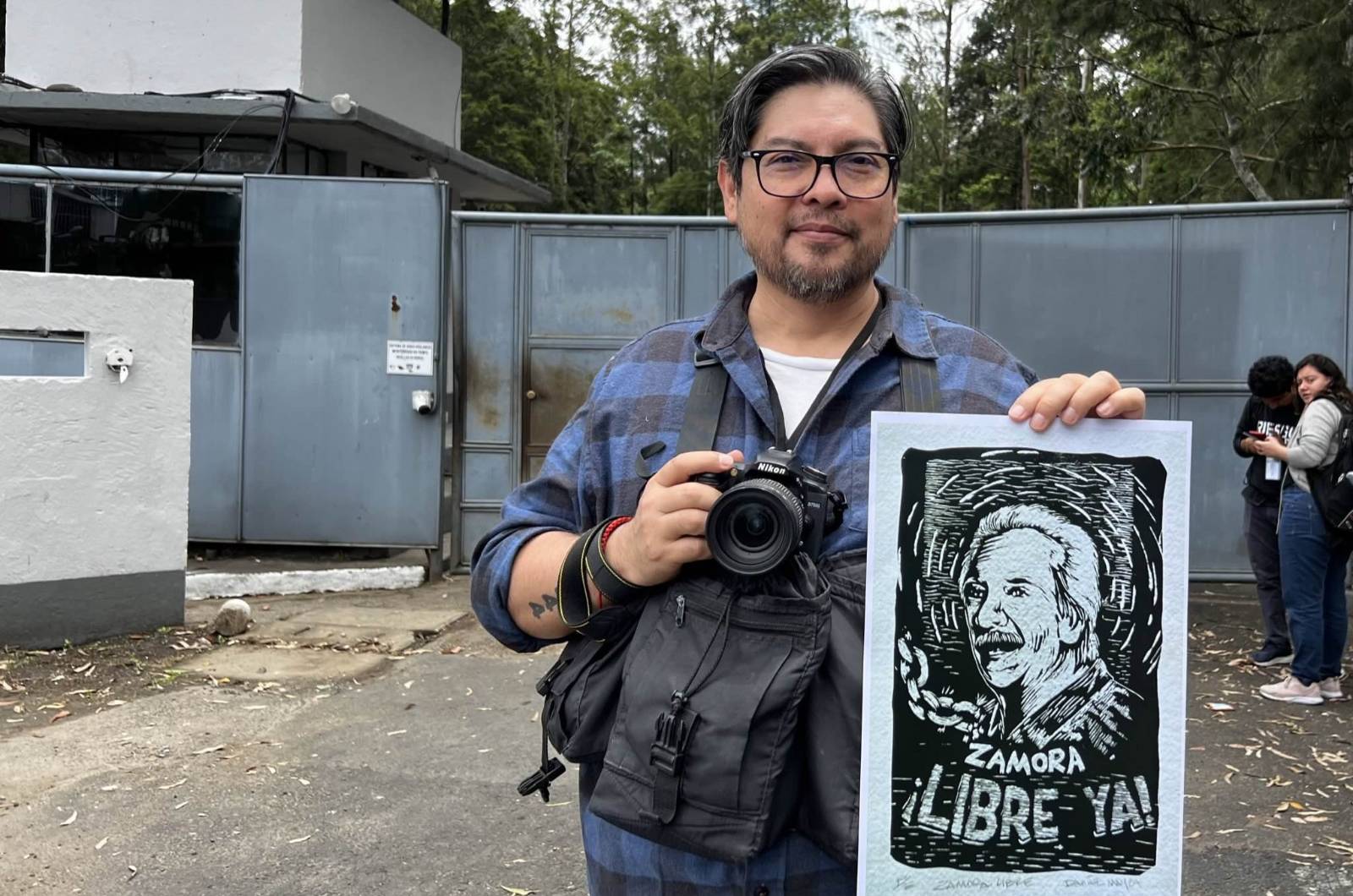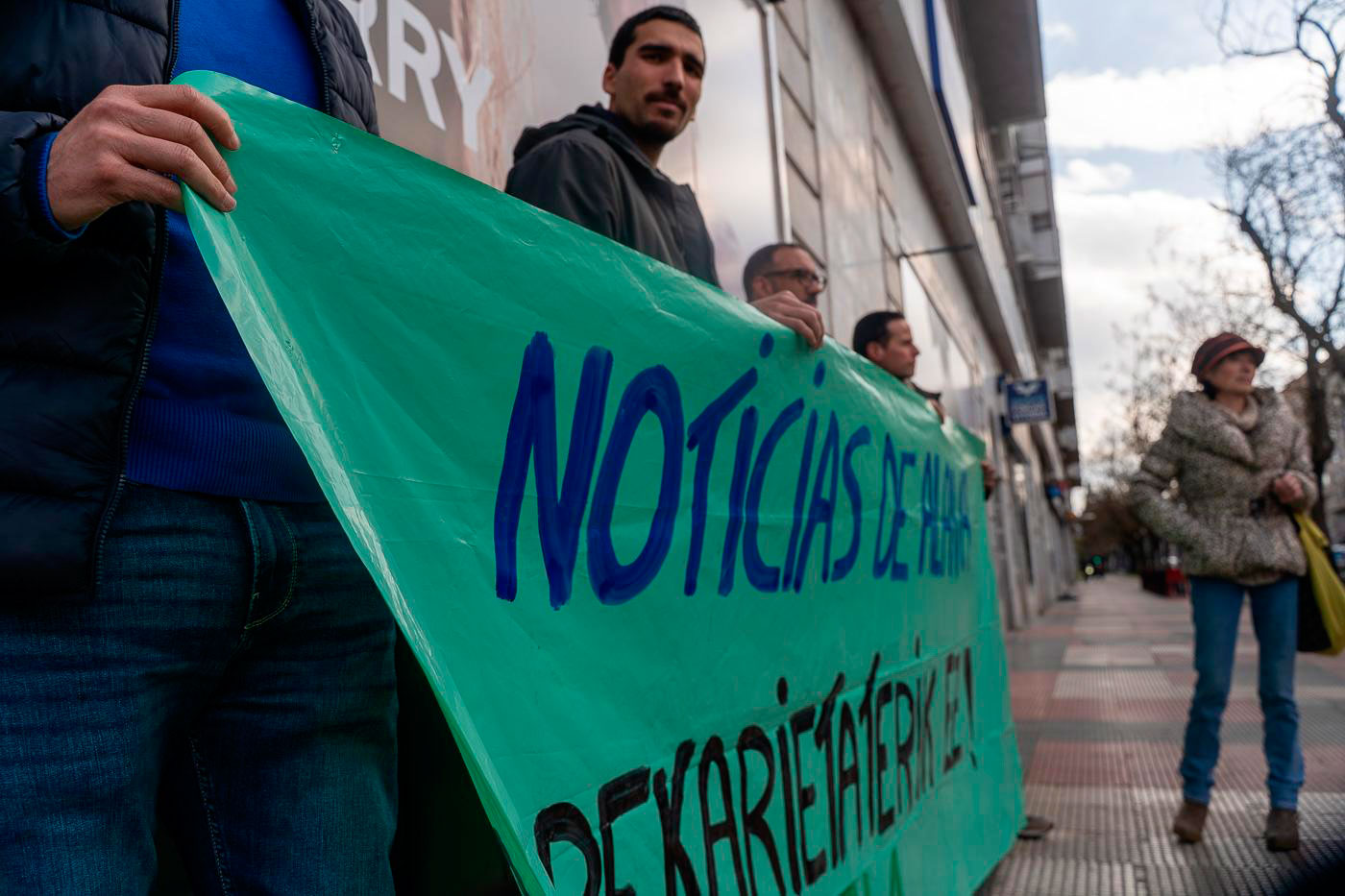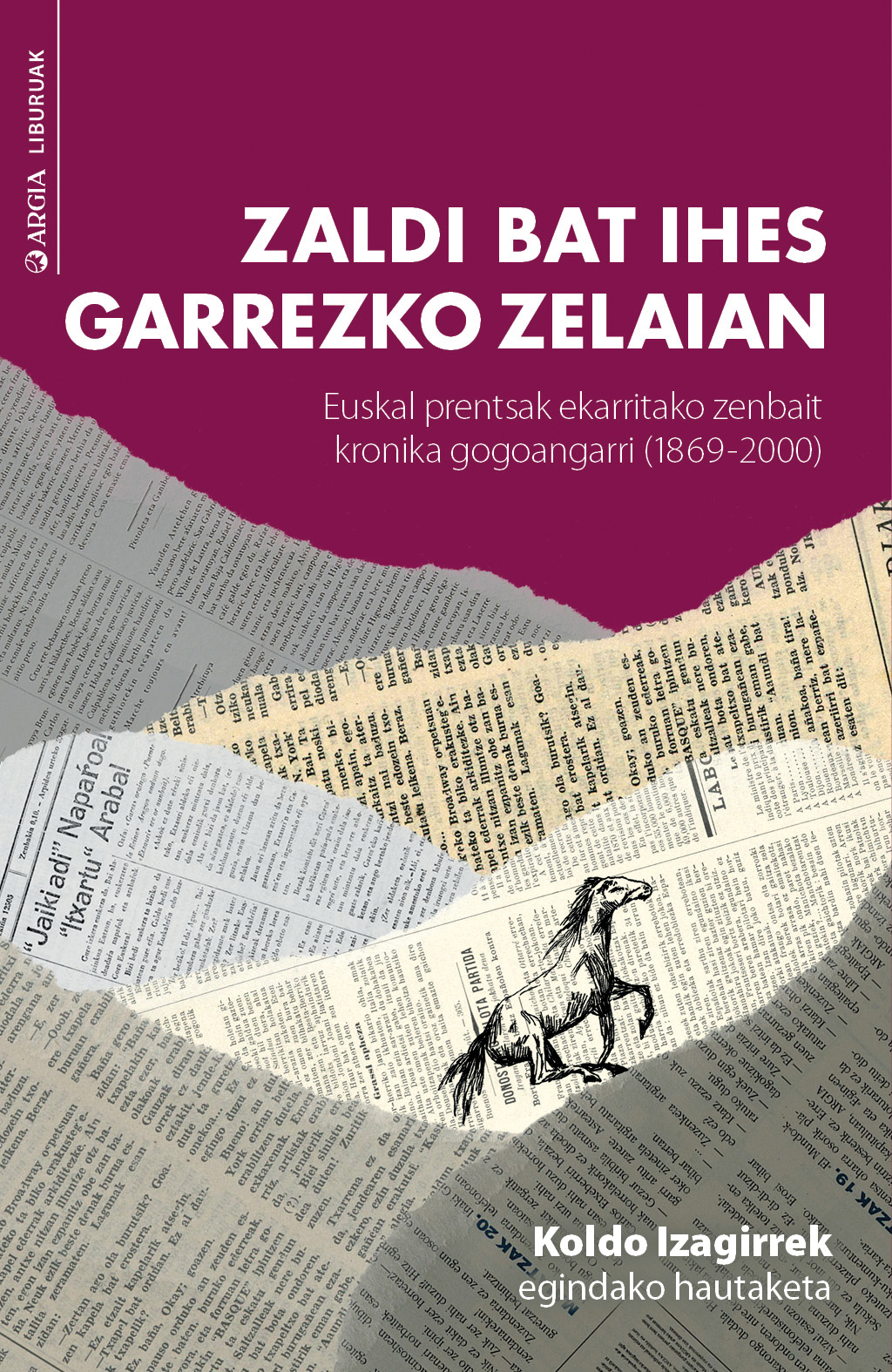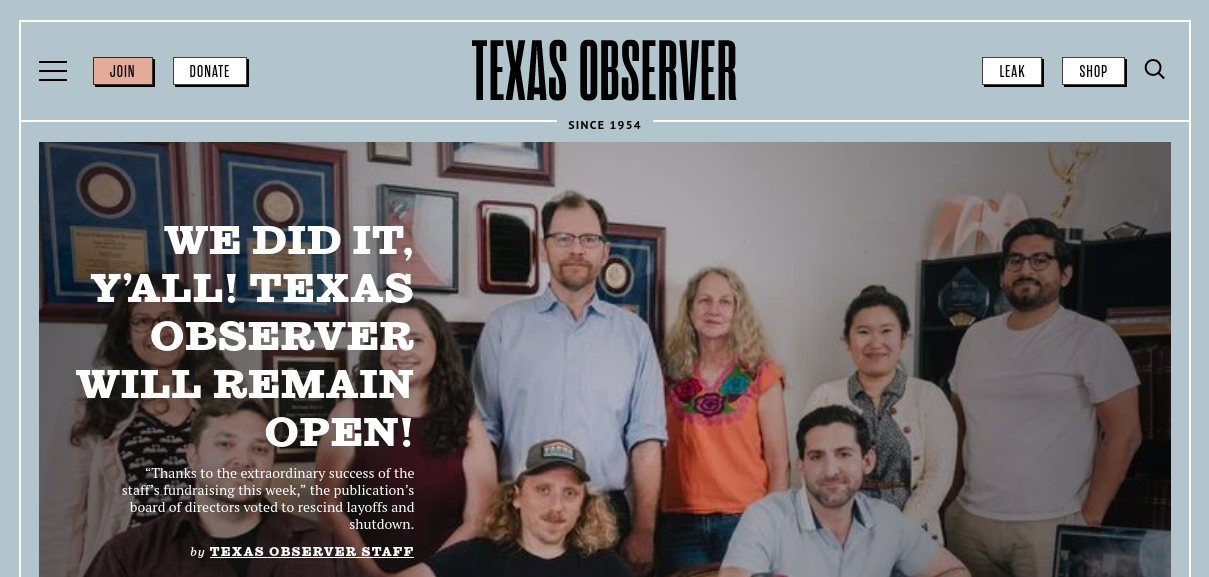"Journalistic studies do not give professionalism, but curiosity and practice"
- The director was murdered a long time ago, as he does not like hierarchical charges. They do not have the support of political parties or private companies. They do not want, because they want to continue to question power. More than with popular movements, they work in the popular movement. That is why we have met in the Patio Marvels of Madrid, with Gonzalo Garate Prieto, who has one leg in the occupied cultural space and another in the writing of the newspaper Diagonal.
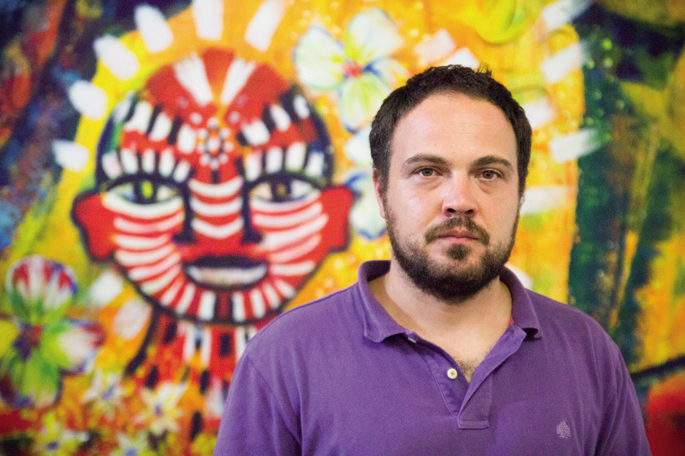
The social movement is the basis and the objective. How do they articulate that relationship?
We like to talk about journalism located. We want not only to report but also to influence. We are fleeing the false objectivity that big media sell. We participated. We leave behind the eastern distance and speak from within, giving voice to the protagonists of the news. We tried to get information firsthand. On the one hand, on a personal level, many colleagues and colleagues belong to the social movement. On the other hand, at the collective level, Diagonal is integrated into the network of movements, which allows us to quickly and directly access information.
In the age of immediacy, you bet on depth.
That has always been our desire: to go beyond the mere news through information so-segmented with analysis. We have discarded the strict pre-established solutions and have forced ourselves to take time for intellectual exercise. We do not want to do journalism based on mere news, but to invite critical reflection on what is happening in the world through a paused reading, from a situated point of view. We are trying to create polyphony, especially on issues that generate controversy. The website addresses the daily work, but analysis and depth predominate in the newspaper.
The jump to professionalization is in many cases a traumatic process. How has your experience been?
We call “Great Leap Forward” the process of moving from Molotov to Diagonal. This meant that some people who did not see this new challenge with good eyes abandoned the project, as well as the arrival of new ones. Molotov was a self-managed counterinformation project, based on the philosophy “do it yourself”. The members of the social movements themselves made known what was happening, did not have to be communication professionals, created the news that they created themselves. Diagonal seeks the union between these two subjects: the militant activist and the communication professional. A sum that does not have to subdue rigor to journalistic work.
Today we still have to work to eradicate that obstacle that says, “By participating in social movements, you will have a biased view and look.” This is the struggle and tension that we live in Diagonal in recent years: trying to be more professional every day.
Is it the university career that gives professionalism?
It is a classic of the liberal professions, of a strong corporate character, which try to put the defensive that no one enters their field of work. It also happens in journalism. The fact of having studied journalism does not give professionalism, but rather a trade, knowledge and curiosity. And that, of course, gives you the practice. In ten years we have created a space of professionalism. We have guaranteed income, paid work and contribution for the 13 people who work in Diagonal, whether or not they have journalism studies.
The Government ' s latest measures, however, go a long way towards deepening this distinction.
Diagonal is not located in citizen journalism, but it is undeniable that this figure is very alive. Today, in a demonstration, anyone can become a communicator with a mobile phone next to them. Anyone has at his disposal the possibility to broaden his or her point of view or to make known a case that demonstrates police repression, for example. This directly attacks the status quo and establishment, and from this point of view we must understand the reaction of the system. The government's agreement with the most corporatist media sector to differentiate "good" journalists from "bad" journalists is an attempt to deepen control by agreeing on measures such as the identification vest. In any case, it is an open debate. Police attacks on the people on the street are ongoing. These are unacceptable cases in a system called Western democracy, as several reports have denounced.
Is it possible to reverse media hegemony without prior political changes? Or is it the other way around?
It's a constant tension. They're interconnected. However, I do not know to what extent it is desirable to have a hegemonic role capable of marking reality. It's more interesting to create a more complex view of reality, a view that doesn't have that much shadow through multiple views.
One of the biggest problems we have is the pride of some political projects. They think it's only from their space that they can change everything, and that's impossible. Each space has capacities that can serve to liberate some nodes from the system, and only by adding them all will structural transformation be achieved.
The M15 has been a milestone, also in the field of communication. How have you lived it?
The appearance of this movement or, as some authors call it, has overwhelmed us. The structures we had to analyze reality and social movements, from day to day, fell from top to bottom and went extinct. A barrage of proposals and initiatives beat us. As part of the social movements in which we live, therefore, to see what happened to the other media. Mass media were much more lost and that has made it possible to reorganize ourselves and, little by little, to make a more detailed and elaborate analysis of what was happening.
Information saturation is evident, but at the same time the presence of social movements in the main media remains null and void. In this sense, does the use of private licenses make sense?
Of course not. Our bet is to work clearly on the Creative Commons (CC) logic. It is surprising that the mass media are completely ignorant of free licences. Photographs are used on social networks or media like Diagonal without asking for permission. They confuse CC and free of charge. Free information should not be free of charge. Promoting dissemination, copying and mixing is good, but there is a lot of work behind it, whether it be in music, video, texts or artistic expressions. It must be acknowledged and taken into account. That is why the idea promoted by CC licences and the world of free culture in general is very interesting: “If you use anything with a free license, you’ll need to use a similar free license to expand your adaptation.”
Who do you have a good relationship with in journalism?
In Diagonal we feel as brother the Catalan weekly La Directa. To put it somewhat, it is our counterpart in the Catalan countries. On the other hand, there are very similar projects in Diagonal and, in order to improve political efficiency and extension, we are in favour of joining forces. That is why we are in contact with the cooperative La Marea, Diario.es and the magazine Mongolia, founded by several employees at the close of the paper edition of Public. All three of us have created Filtrala. It's a platform developed by some computer scientists. So that people who have information that can report cases of corruption can spread it safely, without risk. We have chosen the path of collaboration to overcome the competition that often exists between “small” media. We must unite and help.
How far do you want to go?
Diagonally, and in general, we understand communication as a tool of social transformation. Of course, we would like to have a great capacity to influence and reach many more people. People who know us are implicated in social movements, alternative journalism, or are, mainly, close. It is difficult to go further with scarce economic resources. Jesús Ibáñez, sociologist at the Complutense University of Madrid, told the newspaper El País: “Big media is tools to create reality, if you don’t appear in them, you’re not.” It is they who decide who is part of reality and who is not. Therefore, Diagonal’s task is to expand and expand this reality. So that more and more people know the faces of the other reality that big media hide.
Diru sarreren %10 gutxi gorabehera publizitatetik lortzen dute. “Gure balore antzekoak babesten dituzten enpresak dira Diagonalen iragarkia jarri dezaketenak. Horregatik gure publizitatearen gehiengoa da kooperatibena eta ekonomia sozialaren eremuan aritzen diren enpresena”.
Hamabostean behin egunkari bat kaleratzen dute eta egunero www.diagonalperiodico.net webgunea berritzen dute. 5.000 harpidedun inguru dauzkate Espainiako Estatu osoan banatuta eta sare sozialetan komunitate trinkoa osatu dute: 105.000 lagun Facebooken eta 72.000 Twitterren. Egunkaria Madrilen kioskoetan saltzen da eta hortik kanpo liburu-denda, gaztetxe eta gune alternatiboetara jo beharko du irakurleak. Bi erredakzio-orde dituzte Sevillan eta Asturiasen. 13 laguni ematen dio soldata hilero, baina kolaboratzaile sare nasaia da haien zutabe nagusia. Martxoaren 14an ospatu dute haien 10. urtebetetzea, jai giroan (argazkian).
In 2025, at least one journalist was murdered in Guatemala and another disappeared. It is dangerous to do journalistic work in this country, and so has Reporters Without Borders, in the World Press Freedom Classification 2025, published on May 2. Guatemala ranks 138th out of 180... [+]
Lan baldintzen "prekarietatea" salatzeko kontzentrazioa egin zuten asteartean egunkariaren egoitzaren aurrean. Abenduaren 2tik sindaura greban daude langileak eta mobizlizazioak "areagotzea" erabaki dute orain.
Dagoeneko erreformaren %96 adostuta dute Espainiako Kongresuan erreforma lantzen ari diren alderdiek, eta datorren astean akordio batera iritsiko dira, El Plural.com-en irakurri dugunez.







